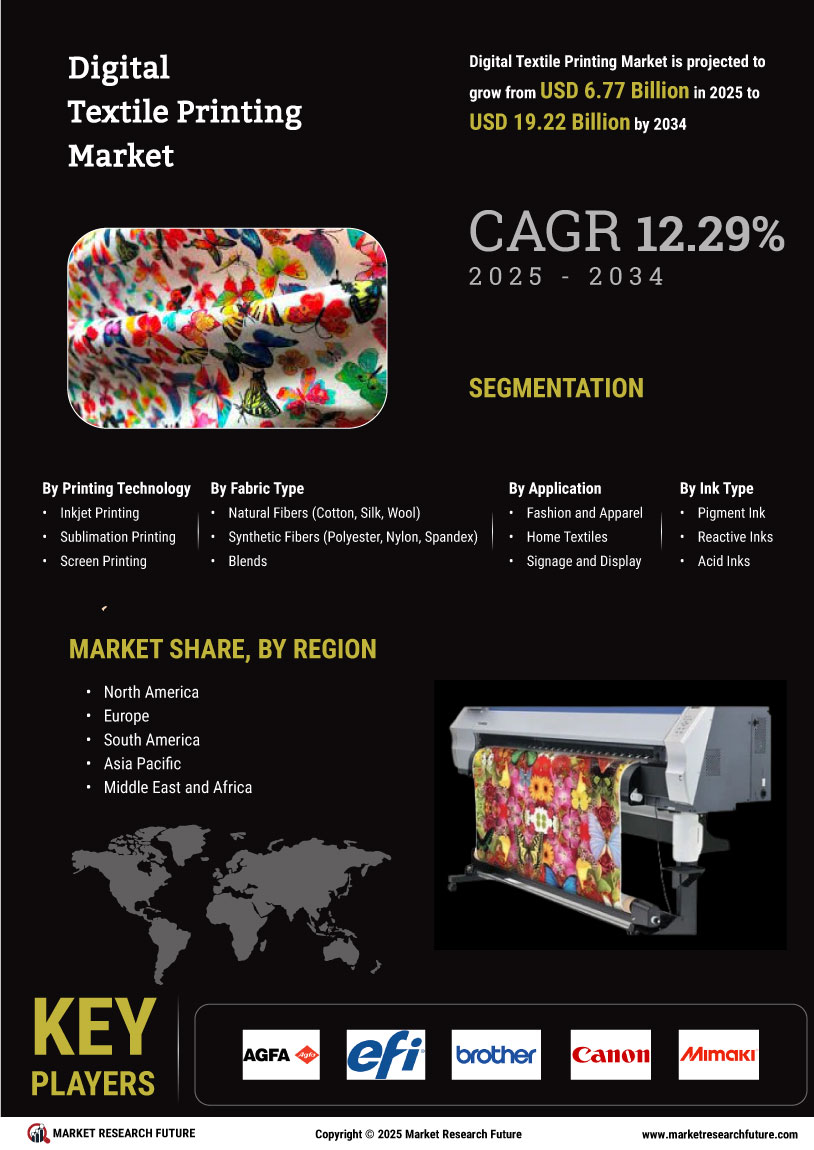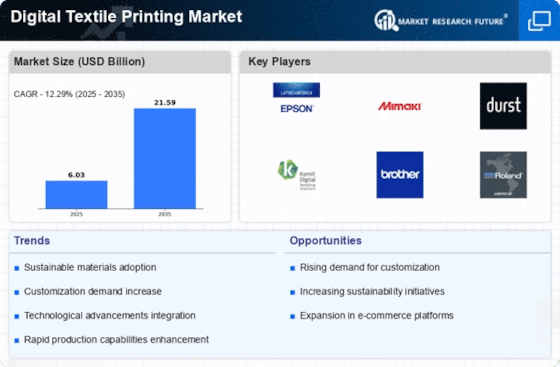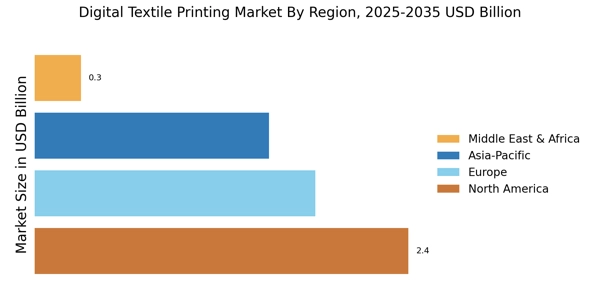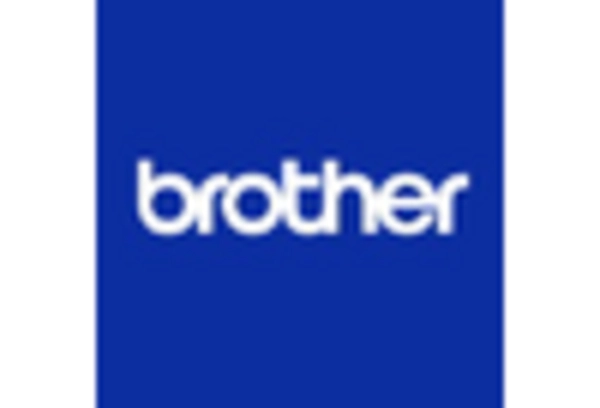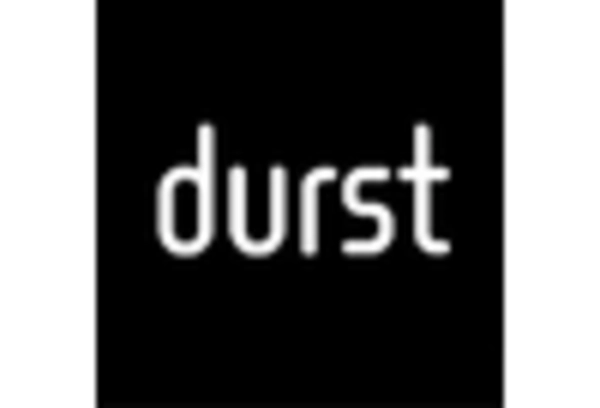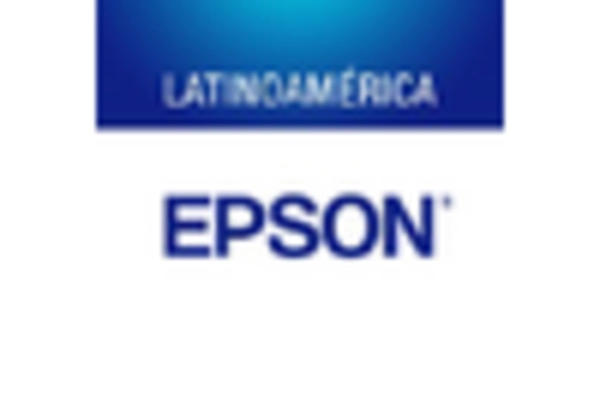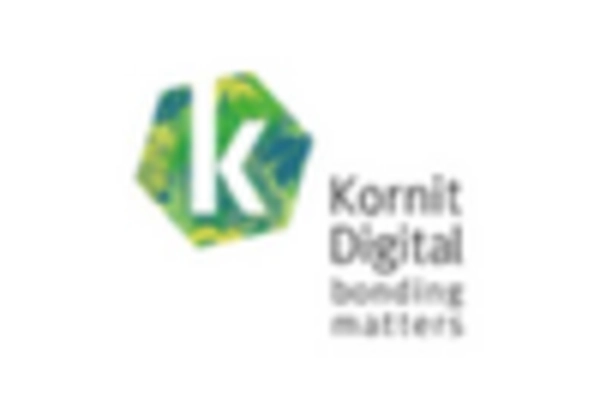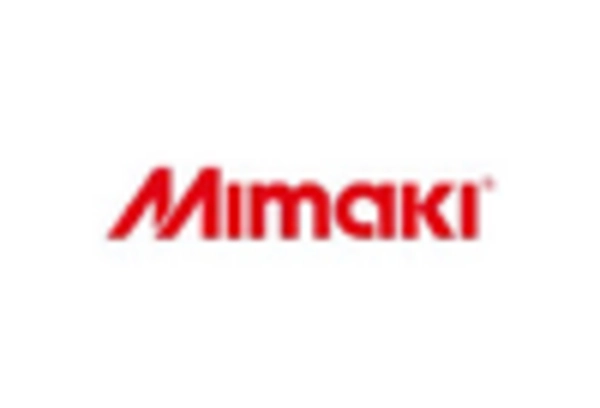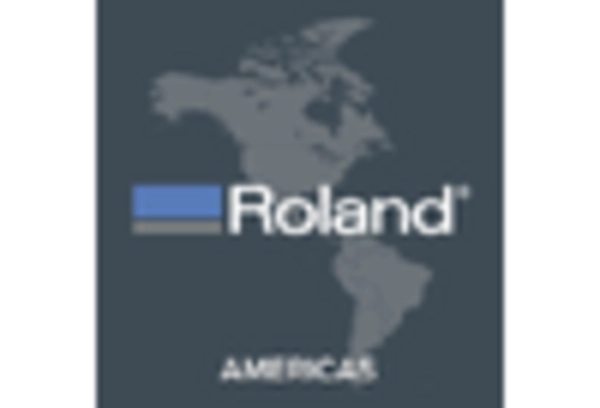Sustainability Focus
The increasing emphasis on sustainability within the Digital Textile Printing Market is driving significant changes in production processes. Consumers are becoming more environmentally conscious, leading to a demand for eco-friendly printing solutions. This shift is prompting manufacturers to adopt water-based inks and recyclable materials, which are less harmful to the environment. According to recent data, the market for sustainable textiles is projected to grow at a compound annual growth rate of over 9% in the coming years. This trend not only aligns with consumer preferences but also encourages brands to innovate in their offerings, thereby enhancing their market position. As sustainability becomes a core value, companies that prioritize eco-friendly practices are likely to gain a competitive edge in the Digital Textile Printing Market.
Technological Advancements
Technological advancements are playing a pivotal role in shaping the Digital Textile Printing Market. Innovations in printing technology, such as the development of high-speed printers and improved ink formulations, are enhancing production efficiency and print quality. These advancements enable manufacturers to meet the growing demand for intricate designs and vibrant colors. Recent statistics indicate that the market for digital textile printing technology is expected to expand significantly, with projections suggesting a growth rate of around 12% over the next few years. As technology continues to evolve, it is likely that new applications and techniques will emerge, further driving the expansion of the Digital Textile Printing Market. Companies that invest in cutting-edge technology are positioned to capitalize on these trends and maintain a competitive advantage.
Growth in Home Decor Sector
The home decor sector is increasingly embracing digital textile printing, which is emerging as a significant driver in the Digital Textile Printing Market. Consumers are seeking unique and personalized home furnishings, leading to a surge in demand for custom-printed textiles. This trend is reflected in the growing popularity of items such as curtains, upholstery, and decorative pillows that feature bespoke designs. Market data indicates that the home decor segment is expected to grow at a rate of around 8% annually, as homeowners prioritize individuality in their living spaces. The versatility of digital printing allows for a wide range of materials and designs, catering to diverse consumer preferences. As the home decor market continues to expand, the role of digital textile printing is likely to become increasingly prominent, further driving growth in the Digital Textile Printing Market.
Customization and Personalization
The demand for customization and personalization in the Digital Textile Printing Market is rapidly increasing. Consumers are seeking unique designs that reflect their individual tastes and preferences. This trend is particularly evident in sectors such as fashion and home decor, where personalized products are gaining traction. The ability to produce small batches of customized textiles efficiently is a key advantage of digital printing technology. Market data indicates that the customization segment is expected to account for a substantial share of the overall market, with growth rates suggesting a potential increase of over 15% annually. This shift towards personalized offerings not only enhances customer satisfaction but also fosters brand loyalty, making it a crucial driver in the Digital Textile Printing Market.
Rising Demand in Fashion Industry
The fashion industry is experiencing a notable rise in demand for digital textile printing, which serves as a key driver in the Digital Textile Printing Market. Designers and brands are increasingly adopting digital printing techniques to create intricate patterns and vibrant colors that traditional methods cannot achieve. This shift is particularly evident in fast fashion, where speed and flexibility are paramount. Market analysis suggests that the fashion segment is projected to witness a growth rate of approximately 10% annually, as brands seek to differentiate themselves in a crowded marketplace. The ability to quickly adapt to changing trends and consumer preferences positions digital textile printing as an essential tool for fashion companies. As the industry evolves, the integration of digital printing technology is likely to become more prevalent, further solidifying its role in the Digital Textile Printing Market.
